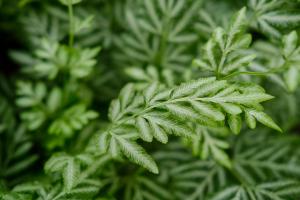Can Seawater Be Used to Water Plants?
Watering plants is an essential aspect of gardening, and the quality of water used can play a significant role in determining plant growth. In coastal regions, people might wonder if seawater, which is abundantly available, can be used to water plants. In this article, we will explore this topic and find out if seawater is appropriate for plant irrigation.
What Does Seawater Contain?
Seawater comprises of salts, minerals, and other organic and synthetic compounds. The average seawater has a salinity of about 35 parts per thousand (ppt). This salinity is mainly due to the presence of chloride ions, followed by sodium, sulfate, magnesium, calcium, and potassium ions.
Effects of Seawater on Plants
Seawater has high levels of salt concentration. Salts can cause osmotic stress, which means that seawater can pull water out of plant cells, making them shrink and eventually die. Salt concentration can also interfere with the plant's ability to absorb nutrients from the soil. Furthermore, seawater can contain traces of heavy metals, such as mercury, cadmium, and lead, which can be toxic to plants and humans alike.
Can Plants Tolerate Seawater?
Some plants can tolerate a certain level of salt concentration. These plants are called halophytes. Halophytes are adapted to grow in saline environments and have evolved mechanisms to excrete or store excess salt in their leaves, stems, or roots. However, most common garden plants, such as vegetables, fruits, and ornamentals, are not halophytes and cannot tolerate seawater irrigation.
Alternatives to Seawater Irrigation
For coastal gardeners, there are other alternatives to seawater irrigation. One option is to use rainwater. Rainwater is free of salts and pollutants and can be harvested in barrels or cisterns. Another option is to rinse seawater with freshwater first to reduce its salt concentration. This process is called desalination and can be done through reverse osmosis, distillation, or ion exchange.
Conclusion
In conclusion, seawater is not advisable for plant irrigation due to its high salt concentration and traces of heavy metals. It can be detrimental to most garden plants and can cause long-term soil salinization. However, some halophytes and coastal shrubs may tolerate seawater, but these are not popular garden plants. Gardeners in coastal regions can opt for rainwater or desalinated seawater instead.

 how many times do yo...
how many times do yo... how many planted tre...
how many planted tre... how many pine trees ...
how many pine trees ... how many pecan trees...
how many pecan trees... how many plants comp...
how many plants comp... how many plants can ...
how many plants can ... how many plants and ...
how many plants and ... how many pepper plan...
how many pepper plan...
































